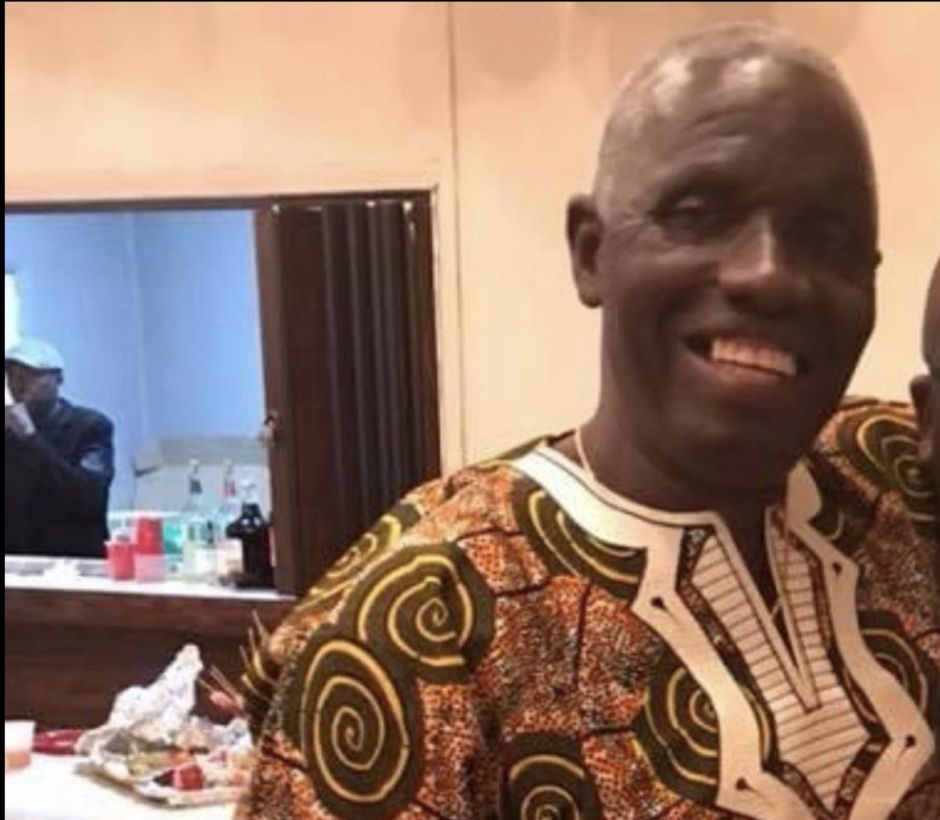
By Anthony Stephens with New Narratives
United States authorities have charged Moses Wright, one of the most important figures in the turmoil that engulfed Liberia in the late 1980s and 90s, with immigration fraud and perjury related to his actions during the Liberian civil war.
The indictment alleges Wright, 69, a cousin of late Liberian President Samuel Doe and former head of the 1st Battalion of the Liberian army, committed fraud against the American government when he applied for asylum, residency and US citizenship. US immigration procedures require applicants to confess if they have participated in the attempted overthrow of a government or committed war crimes.
Jaqueline Romero, US Attorney for the Eastern District of Pennsylvania, alleged that Wright withheld information that he “personally committed, or ordered Armed Forces of Liberia troops under his command to commit numerous atrocities,” including persecution of Gio and Mano civilians, murder, assault and false imprisonment of civilians. If convicted, Wright faces a maximum possible sentence of 165 years in prison and a $7,000,000 fine – by far the largest faced by any of the five Liberians charged in relation to wartime atrocities in the United States.
“Wright sought to escape to the United States and start anew, where he lied about his appalling wartime conduct on federal immigration forms and to the faces of U.S. officials. The United States will not be a safe haven for human rights violators and war criminals,” said Romero in a statement.

Liberia’s Truth and Reconciliation Commission found Wright, Moses Thomas, James Chelly and George Dweh had killed “27 Gio and Mano family members in a massacre in June 1990 on Doe’s orders.” In 2021 A Philadelphia civil court found Moses, a top commander of Doe’s Special Anti-terrorist Unit (SATU), liable for the 1990 St. Peters’ Lutheran Church massacre where 600 men, women and children sheltering in a church were slaughtered. Shocking images from the killings brought the world’s attention to the Liberian conflict.
Doe praised Wright for “crushing” a coup attempt by Thomas Quiwonkpa in November 1985. That came five years after Doe successfully overthrew the election government of William R. Tolbert.
Wright was granted asylum in the US in 2000 and permanent residency in 2008. In May 2013 he applied for US citizenship. Prosecutors allege he lied repeatedly in all these proceedings.
Wright is the fourth criminal public prosecution in Philadelphia in relation to Liberia’s civil wars. Mohammed Jabateh, commonly known as “Jungle Jabbah” was found guilty in 2017 and is serving a 30-year jail sentence. Thomas Woewiyu, former NPFL number two was convicted in 2018 and died of Covid while awaiting sentencing. In March this year Sekou Kamara, allegedly a former LURD commander, was arrested in New York and charged with lying to immigration authorities about his involvement with the group.
Liberia’s human rights community has been celebrating Wright’s arrest. Hassan Bility, whose organization Global Justice and Research Project, has been key in those trials by providing information and witnesses to the prosecutors, also assisted the US Homeland Security Investigations Philadelphia office during the investigation. He said Wright’s arrest was an important victory for their advocacy of prosecuting alleged perpetrators of Liberia’s civil wars.
“Today’s arrest in the US marks another milestone in the struggle for justice and accountability in Liberia”, Bility said in a text message. “Nobody can outrun the reach of the long arms of justice. About three decades ago, as the Liberian civil war raged, little did the architects and engineers of murder and torture expect that this day would come.”
Wright’s arrest comes at a time Liberia has yet to take a definitive position on establishing a war crimes court, with the Legislature, which has the constitutional power to establish courts not clear on the matter. Last year, the House of Representatives voted to cancel out a 2019 resolution by more than two thirds of the body approving the court. The House asked its members to consult their constituents on the court. The Senate has asked President Weah to set up a transitional justice commission to review recommendations of the TRC—a move justice advocates claimed was designed to delay a vote to establish a court.
Bility reiterated the importance for the Legislature to make a clear decision on the matter. “I therefore call on the Liberian Government, specifically, the Legislature, to take actions aimed at realizing the the recommendations of the TRC,” he said. “Mr. President, this is your call now- more than it is jurisdictional authorities overseas. Your people, living and dead, are crying out for justice”.
This story was produced in collaboration with New Narratives as part of its West Africa Justice Reporting Project.
